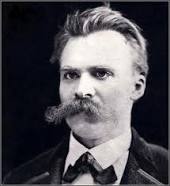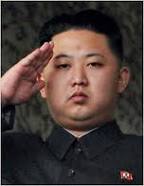How Nietzsche Can Be Relevant today


 North Korea just launched another missile, claiming self-defense. The young new leader, Kim Jong-Un has declared that the U.S. is his biggest enemy and has pledged to attack us—in self-defense. This brought to mind something I read a long time ago and last pondered in the early 1980s when Brezhnev and Reagan were facing off in the last stages of the Cold War that gave us the jitters back in the 1950s. As the French say, “la plus que ça change, la plus c’est la même chose” (the more things change, the more they just stay the same).
North Korea just launched another missile, claiming self-defense. The young new leader, Kim Jong-Un has declared that the U.S. is his biggest enemy and has pledged to attack us—in self-defense. This brought to mind something I read a long time ago and last pondered in the early 1980s when Brezhnev and Reagan were facing off in the last stages of the Cold War that gave us the jitters back in the 1950s. As the French say, “la plus que ça change, la plus c’est la même chose” (the more things change, the more they just stay the same).
Nietzsche wrote this when Bismarck was building up a huge military machine in the 1870s and 1880s, claiming self-defense as a justification:
The means to real peace:
No government admits any more that it keeps an army to satisfy the desire for conquest. Rather, the army is supposed to serve for defense, evoking a morality that approves of self-defense.
But this implies one’s own morality and the neighbor’s immorality; for the neighbor must be thought of as eager to attack and conquer if our state must defend itself against our bellicose neighbor. Moreover, the reasons we give for requiring an army imply that our neighbor, who denies the desire for conquest just as much as we do, and who, for his part, also keeps an army only for reasons of self-defense, is a hypocrite and a cunning criminal who would like nothing better than to overpower a harmless and awkward victim without any fight.
Thus all states are now ranged against each other; they presuppose their neighbor’s hostility but insist on their own good disposition. This is the challenge and the cause of wars…it provokes a hostile disposition from the other side. Both sides claim they are acting in self-defense, which escalates the conflict.
….perhaps the day will come when a people will lay down the sword and will smash the entire military establishment. Rendering oneself unarmed when one had been the best-armed is the means to real peace. As it is today, one trusts neither oneself or one’s neighbor and, half from fear and half from hatred, does not lay down arms.
——Friedrich Nietzsche, The Wanderer and his Shadow, a postscript that ended his essay Human All Too Human (1880)
← BACK